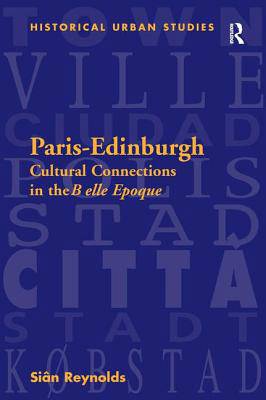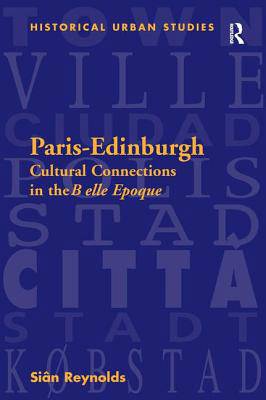
Je cadeautjes zeker op tijd in huis hebben voor de feestdagen? Kom langs in onze winkels en vind het perfecte geschenk!
- Afhalen na 1 uur in een winkel met voorraad
- Gratis thuislevering in België vanaf € 30
- Ruim aanbod met 7 miljoen producten
Je cadeautjes zeker op tijd in huis hebben voor de feestdagen? Kom langs in onze winkels en vind het perfecte geschenk!
- Afhalen na 1 uur in een winkel met voorraad
- Gratis thuislevering in België vanaf € 30
- Ruim aanbod met 7 miljoen producten
Zoeken
€ 305,45
+ 610 punten
Uitvoering
Omschrijving
By the end of the nineteenth century, Paris was widely acknowledged as the cultural capital of the world, the home of avant-garde music and art, symbolist literature and bohemian culture. Edinburgh, by contrast, may still be thought of as a rather staid city of lawyers and Presbyterian ministers, academics and doctors. While its great days as a centre for the European Enlightenment may have been behind it, however, late Victorian Edinburgh was becoming the location for a new set of cultural institutions, with its own avant-garde, that corresponded with a renewed Scottish national consciousness. While Morningside was never going to be Montparnasse, the period known as the Belle Epoque was a time in both French and Scottish society when there were stirrings of non-conformity, which often clashed with a still powerful establishment. And in this respect, French bourgeois society could be as resistant to change as the suburbs of Edinburgh. With travel and communication becoming ever easier, a growing number of international contacts developed that allowed such new and radical cultural ideas to flourish. In a series of linked essays, based on research into contemporary archives, documents and publications in both countries, as well as on new developments in cultural research, this book explores an unexpected dimension of Scottish history, while also revealing the Scottish contribution to French history. In a broader sense, and particularly as regards gender, it considers what is meant by 'modern' or 'radical' in this period, without imposing any single model. In so doing, it seeks not to treat Paris-Edinburgh links in isolation, or to exaggerate them, but to use them to provide a fresh perspective on the internationalism of the Belle Epoque.
Specificaties
Betrokkenen
- Auteur(s):
- Uitgeverij:
Inhoud
- Aantal bladzijden:
- 240
- Taal:
- Engels
- Reeks:
Eigenschappen
- Productcode (EAN):
- 9780754634645
- Verschijningsdatum:
- 28/12/2006
- Uitvoering:
- Hardcover
- Formaat:
- Genaaid
- Afmetingen:
- 156 mm x 234 mm
- Gewicht:
- 512 g

Alleen bij Standaard Boekhandel
+ 610 punten op je klantenkaart van Standaard Boekhandel
Beoordelingen
We publiceren alleen reviews die voldoen aan de voorwaarden voor reviews. Bekijk onze voorwaarden voor reviews.









